For ad publishers and site owners, this shift presents both obstacles and opportunities. In this article, we will:
- Explore the Google Search AI Overview impact on SEO
- Uncover how it’s reshaping online visibility
- Learn more proven strategies publishers can use to stay competitive in an AI-first search environment.
How AI search changes the landscape of online visibility
For businesses that depend on digital visibility, the rise of AI search marks a major shift in search behavior. Instead of scanning through a list of links, users now receive immediate, context-rich answers generated by AI. Thus, it directly affects how websites are discovered, ranked, and optimized.
Shortening the marketing funnel
One of the most notable impacts of AI search is compressing the traditional marketing funnel. In the past, users would move step by step. They start with a broad search, click on multiple links, and gradually narrow their focus until they are ready to act.
Today, AI shortens this journey dramatically. Instead of scanning through a list of search results, users are presented with immediate, context-rich answers directly in the search interface. Therefore, it urges publishers to think beyond relying on click-through traffic and traditional rankings. Businesses now need to ensure that their content is not only optimized for search engines but also visible and accessible within large language models (LLMs), which are increasingly shaping how information is delivered.
Possibly higher conversion despite lower traffic
Although referral traffic from search engines may decline, the value of AI search visitors is significantly higher. According to SEMrush, AI search visitors convert at 4.4x the rate of typical organic traffic, largely because these users arrive more informed and closer to making purchase decisions.
Shifting priorities toward quality and relevance rather than rankings
AI search frequently highlights content from sites ranking beyond the top three positions, sometimes as low as positions 6 to over 21.
This shows that SEO for AI search requires high relevance, solid content quality, and clear structure, instead of only traditional page rankings. This is because language models (LLMs) are built to understand nuanced user intent and, afterwards, generate responses tailored to individual queries rather than targeting the average user.
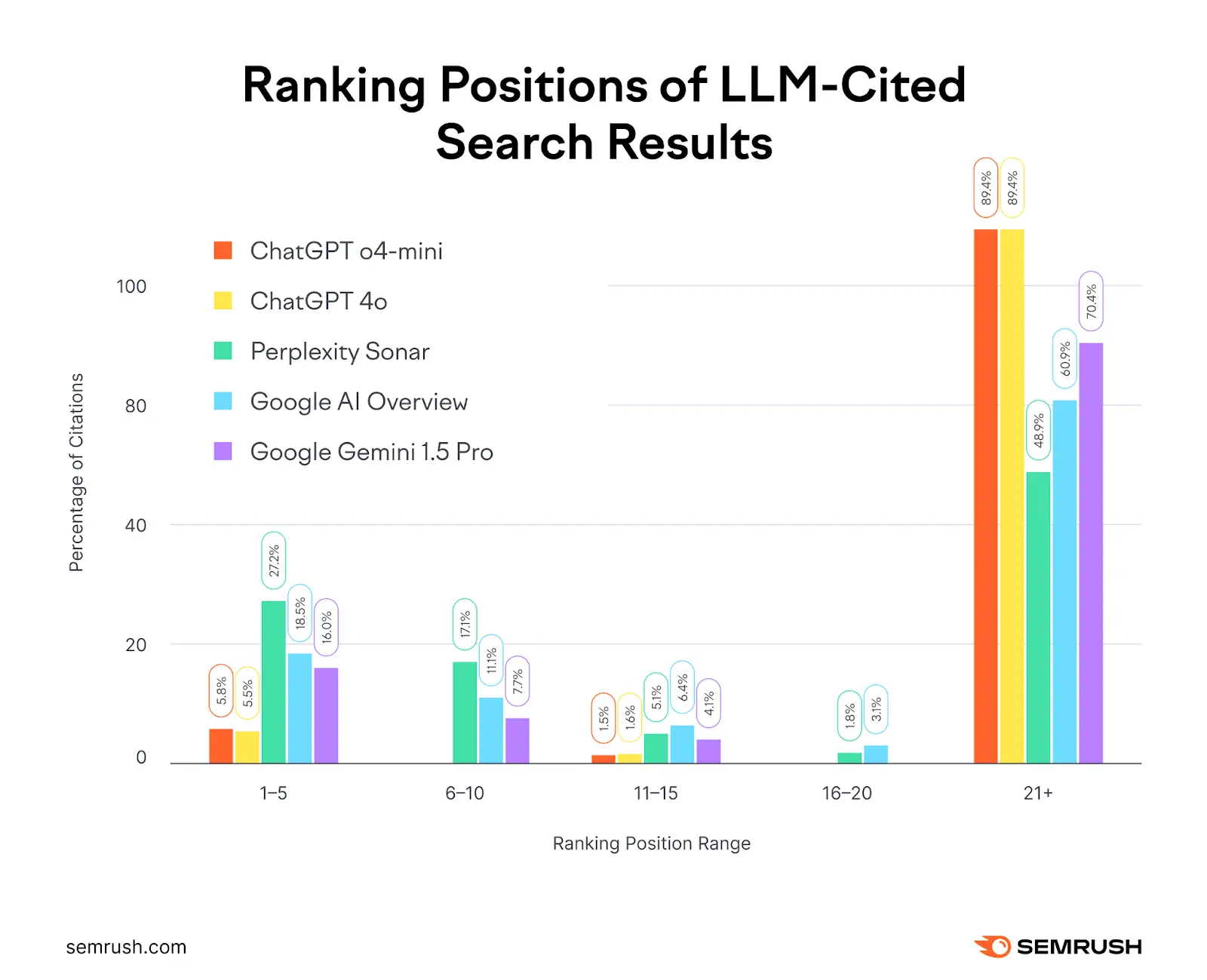
Increased influence of LLMs’ common sources of information
Interestingly, Quora and Reddit are the most commonly cited websites in Google AI overview, because users on these two sites often ask and answer highly specific and niche questions and situations that may not be addressed elsewhere. Therefore, they become the ideal sources of information for highly specific AI prompts. These sites’ influence was strengthened even further when, in February 2024, Google and Reddit struck a partnership in which the former will have real-time access to the latter’s data to train its AI models.
As a result, SEO for AI search engines requires publishers to position themselves within the ecosystems from which AI systems are sourcing their data.
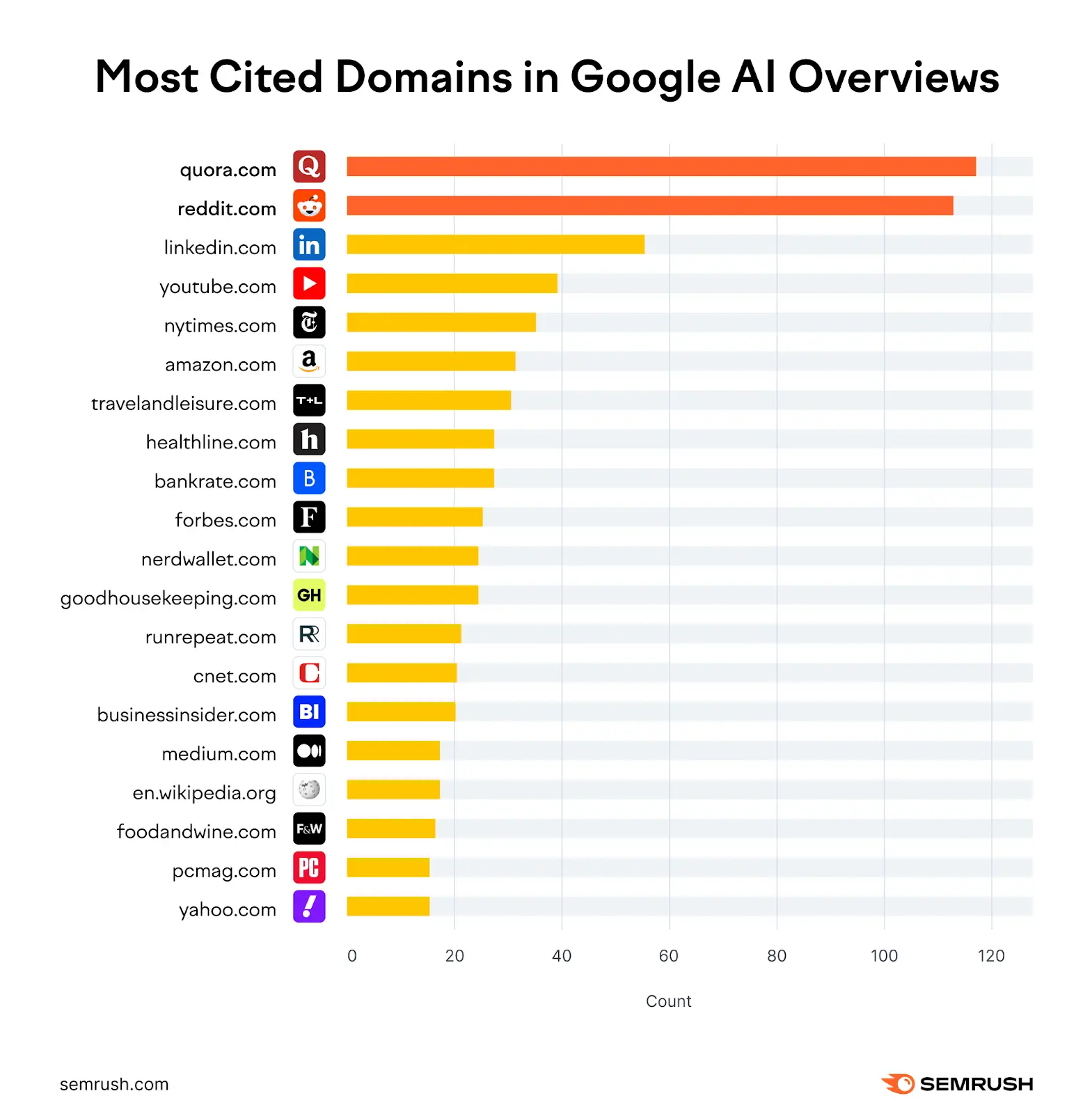
Action plan for publishers: 4 SEO strategies to stay visible in AI search
For publishers who want to remain competitive and seize the many opportunities of AI search, their SEO strategies for AI-driven search must combine both traditional SEO tactics and new, diverse visibility tactics. The following practices can help ensure visibility and broaden monetization opportunities.
Sustaining core SEO practices
As discussed above, LLM visibility is still largely attributed to good SEO practices. Therefore, publishers should continue creating helpful, relevant, and well-structured content. They also need to ensure their sites remain crawlable. Furthermore, information needs to be presented in quotable, well-organized sections with clear, descriptive headings.
Ensuring site and content are LLM-friendly
To boost the chance of being featured in an LLM-generated response, there are three main factors that site owners should keep in mind.
First: Content quality remains the single most important factor. High-value, accurate, and original content is more likely to be selected by AI systems because it aligns with user intent and provides trustworthy information.
Second: Publishers should embrace multimodal content. By diversifying formats – such as text, images, videos, and audio, they give AI systems multiple ways to interpret and present the material. This approach increases the likelihood of content being included in chatbot-style answers or Google’s AI Overviews.
Third: Publishers need to write with NLP-optimization in mind. This means structuring content with clear grammar, descriptive headings, and relevant entities. When information is presented in a straightforward and well-organized manner, AI systems can extract it more effectively, leading to stronger visibility in search results.
Broadening content strategy to prioritize quality over rankings
As LLMs typically pull answers from sites ranking 6th and above, ranking from 1st to 3rd position on Google may no longer be strictly necessary for visibility.
However, AI is more likely to prioritize content tailored to highly specific use cases and audiences. Therefore, publishers should diversify their content plan. Apart from general information, they should consider producing detailed product guides, niche blog posts, and resources that address very specific user queries within their industries.
Strengthening presence on major LLM sources
To strengthen sites’ visibility in AI-generated search results, it’s essential to establish a strong presence on the platforms that large language models (LLMs) frequently reference. Two of the most influential sources in this space are Quora and Reddit. They are communities where users ask highly specific questions and receive detailed, real-world answers. By actively contributing thoughtful, relevant responses to these platforms, publishers can position themselves as trusted voices in niche discussions, thus increasing the likelihood that AI systems will surface their content.
Additionally, investing in digital PR can further enhance credibility and discoverability. Securing mentions or citations from authoritative publications and respected industry websites not only boosts brand recognition but also helps signal trustworthiness to AI systems scanning the web for reliable information.
Finally, publishers should focus on building quality backlinks from platforms that LLMs regularly index, including industry-specific forums, professional directories, and community-based websites.

Thriving in the age of AI-powered search experience
The rapid expansion of AI within the search experience has made it increasingly challenging for site owners to keep pace with evolving user behaviors and sustain online visibility. However, by understanding how LLMs generate responses and structuring their website content accordingly, brands can take a proactive approach to enhance their digital presence. With a well-informed and adaptive strategy, publishers can effectively leverage AI-driven search as a powerful source of both traffic and revenue.
Geniee also followed up the AI latest trend by releasing the English version of Japan AI that can be used for the global market with many advanced features.

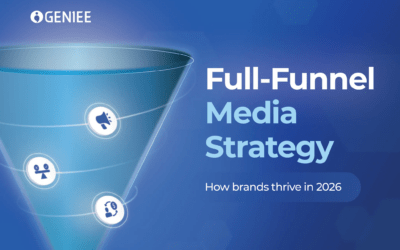
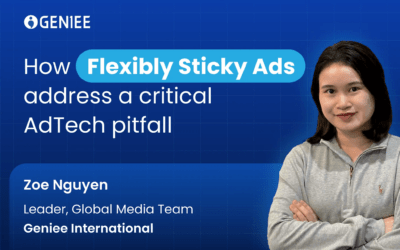
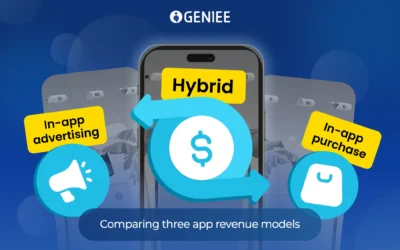
0 Comments